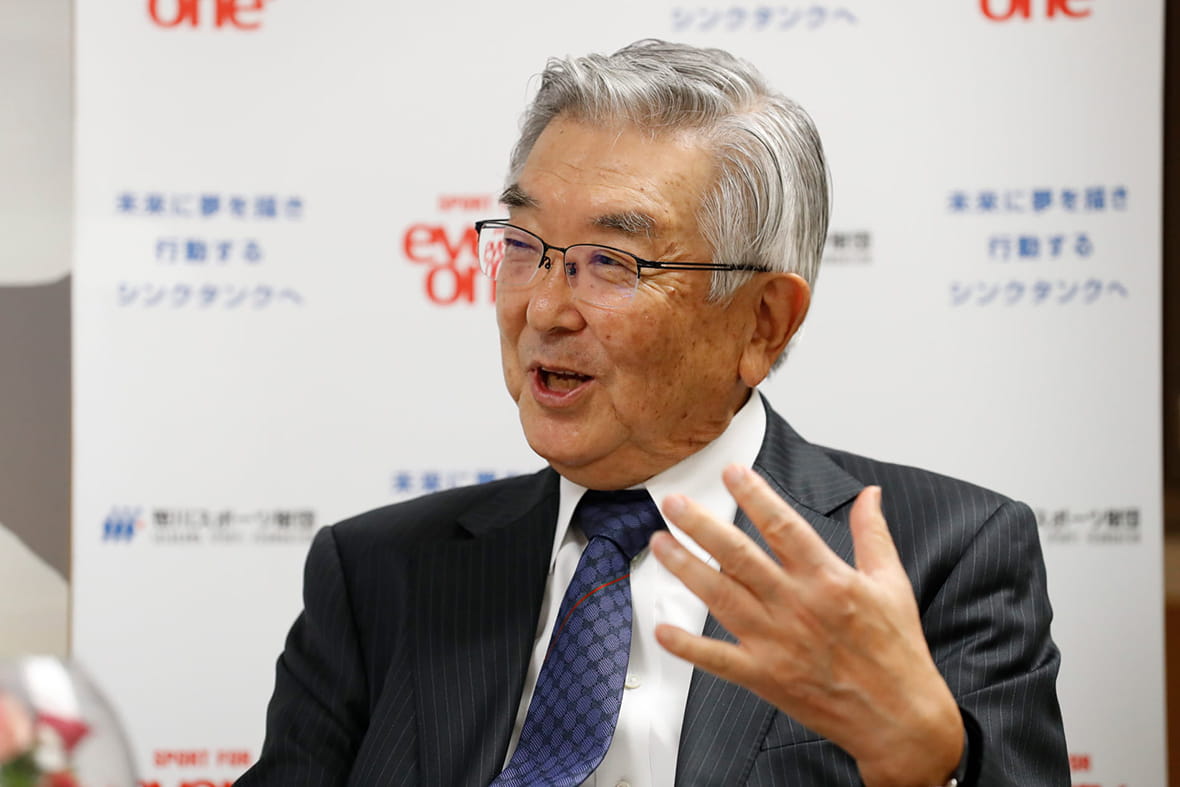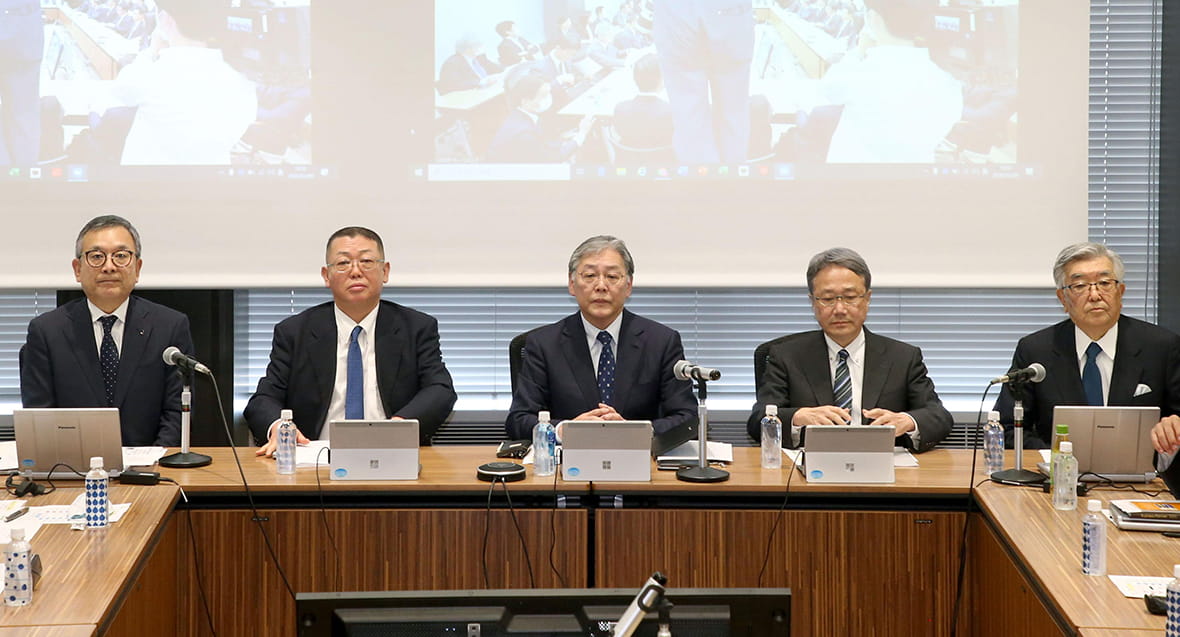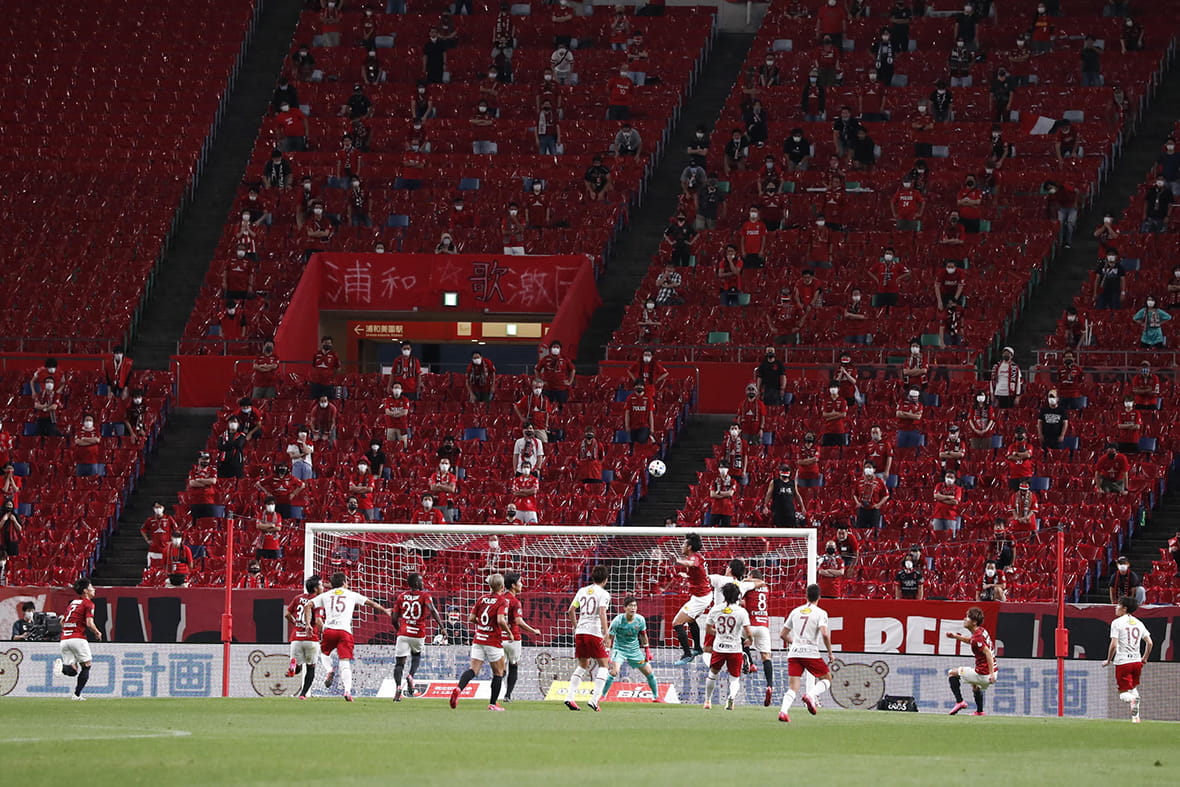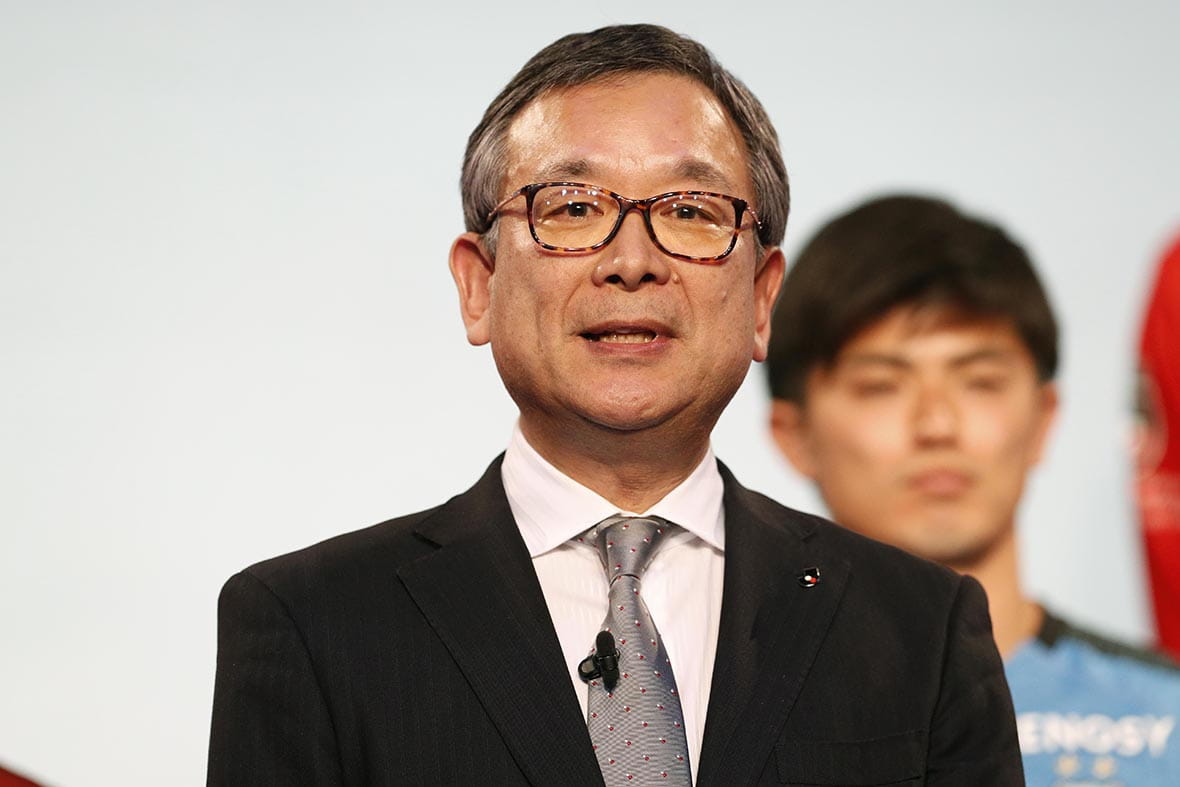A Coordinated Response
Since a professional league was established in 1936, baseball has enjoyed unrivaled popularity as a spectator sport, prompting many to call it Japan’s de facto national sport. Soccer now ranks second in the number of attendees, following the 1993 launch of the Japan Professional Football League (popularly known as J. League), which has adopted a branding strategy of fostering a strong host-city identity.
Both leagues, though, were dealt a severe blow by the outbreak of COVID-19, which resulted in months-long delays in the start of the 2020 season and forced many games to be played in empty stadiums.
In the following, Nippon Professional Baseball (NPB) Commissioner Atsushi Saito and J. League Chairman Mitsuru Murai discuss the challenges the pandemic poses for their leagues and other professional sports and the various measures they have adopted to deal with the crisis. The interviews were conducted separately.
ATSUSHI SAITO: In February 2020, as the world began learning about a deadly new infectious respiratory disease, Nippon Professional Baseball held a board meeting to share information and consider countermeasures. It was there that Yomiuri Giants owner Toshikazu Yamaguchi proposed that we coordinate our response with J. League. On March 3, we established a joint COVID-19 task force, inviting three infectious disease experts as advisors.

“We’ve created a broad-ranging information-sharing system with J. League,” says NPB Commissioner Saito, ”that should prove to be very useful in times of emergency.” ©Photo Kishimoto
MITSURU MURAI: Although the NPB and J. League tend to be seen as rivals competing for sports fans, we’re actually in a close, synergistic relationship. This became very clear when the sports channel DAZN began broadcasting both our matches. We realized that viewers aren’t interested in just one sport; they’re looking for exciting and unscripted competition in all kinds of sporting events. In other words, the best way to increase the number of soccer fans wasn’t to lure them away from baseball but to work together in expanding the pool of sports enthusiasts.
That being the case, we didn’t hesitate for a moment to coordinate our COVID response with our baseball colleagues. In fact, we agreed to not only work closely among ourselves but also openly share our policies and other relevant information with both professional and amateur sport groups that attract large audiences, such as those belonging to the Japan Top League Alliance, as well as performing arts organizations and the entertainment industry. I’m very proud of the fact that both J. League and pro baseball recognized the pandemic as a common challenge requiring a coordinated response.

J. League Chairman Murai (far left), NPB Commissioner Saito (far right), and expert members of the joint COVID-19 task force. ©Kyodo News
Sports as an Integral Facet of Human Existence
NPB created a 130-page guideline containing detailed rules on such items as mask use, social distancing, access control, and the number of players that may use the shower room at the same time. Many of the rules were drawn from those adopted in Taiwan and South Korea, which began their 2020 seasons earlier. In Japan, the regular season began on June 19 without spectators; stadiums began admitting up to 5,000 fans on July 10 and, after several delays, up to 50% of seating capacity from September 19.
The J. League guidebook ran to 100 pages, calling for tests to be conducted on all players and officials. In case there were not enough players testing negative, matches were cancelled. Spectators were required to undergo temperature checks, wear masks, and practice social distancing. The 2020 season resumed on July 4 (after initially opening in February) in empty stadiums; up to 5,000 fans were admitted from July 10, and, again after a number of delays, up to 50% of seating capacity was permitted from September 30.
Attendance plummeted from the previous season—from 26.5 million to 4.8 million for the NPB and from 11.0 million to 3.6 million for J. League—but thanks to these rules, none of their games became clusters for COVID cases.

A J. League match during 2020, held under strict social distancing and other rules to prevent the spread of COVID-19. ©Photo Kishimoto
MURAI: I believe that the Tokyo Games will be a truly important event, not in spite of the pandemic but because of it. The Olympic and Paralympic Games are much more than just athletic contests; they, along with World Cup soccer, represent the pinnacle of international competition and symbolize the best in sports, highlighting the qualities that make sports such an integral facet of human existence. At a time when the world is still struggling with COVID, watching top athletes at the Games can be a source of strength, lifting people’s spirits and making life a little easier to bear.

J. League Chairman Murai believes the Tokyo Games will be a truly important event, precisely because they are being held during a pandemic. ©Photo Kishimoto
SAITO: There’s no question that the pandemic has dealt a big financial blow to all professional teams, but fortunately the NPB owners have all been very cooperative with the measures we’ve asked them to take. They knew how much the people of Japan loved baseball and were driven by a sincere wish to meet the expectations of their fans.
There are many aspects of Japanese society and economy that need to be changed. Many of our companies have business models and practices that are no longer competitive. I suspect this is because we lack vision regarding the kind of society we want to build and the goals we want to achieve. Sports can offer clues on how to overcome such shortcomings. There’s great transparency and fairness in determining the outcomes of athletic contests, and good sportsmanship means not just honoring the winners but also giving due credit to the losers. This is the kind of spirit with which we can build a better society for all.
Comments by the speakers translated from excerpts of separate interviews conducted in Japanese on September 14, 2020 (Mitsuru Murai), and October 12, 2020 (Atsushi Saito).




